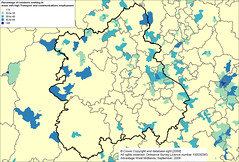
Your resume has many functions, but the primary and first function is that it must attract attention, stimulate interest and prompt your potential employer to call you for an interview. Shabbily presented, incomplete resumes only serve as irritants to recruiters, and guaranteed to be simply ignored.
Here are top 10 mistakes that you must avoid while preparing your CV:
1. Unqualified Candidates – You may want a job, but if you don’t have the certification / qualification, skills and experience needed, employers will feel you’re wasting their time. Be sure to look at the job description for specific criteria such as qualifications to teach or professional certifications. Make sure to highlight the skills they are looking for with a bulleted list of your related qualifications at the top of the document.
2. Spelling Errors & Poor Grammar – This directly reflects on your reputation and image; writing skills are something you should already possess as a “professional”. Of course, you want to use spell check, but that won’t catch every mistake. “Quite” is a correctly spelled word, but it means something very different from “Quiet.”
3. Too Tailor-made – If you’re simply tailoring your resume to fit into what the potential employer has outlined as job description in the advertisement, you’re missing the point of your resume. HR departments already know what the job is; your resume should highlight your accomplishments and how you are best suited for that position.
Be sure to show what you’ve really done by outlining the process, outcomes and results that are specific to your own work experience.
4. Inaccurate Dates or None at all – Employers need to know when you worked & where, in order to get a better understanding of your working history and to use the dates for background / reference checks. Missing dates, especially for long periods of time, could send up a red flag, and the resume may be discarded.
Include specific ranges in months and years for every position. If you have gaps, explain them either in your cover letter or introduction, but not in your resume. It always helps to list any continuing education and training that you have taken and to list any volunteer / project-based work during a slow period or summer months. Listing these under education or volunteer work should explain some of the gaps.
5. Inaccurate or Missing Contact Information – You create a resume to get a phone call or interview. How can someone contact you if the phone number is missing a digit or your email (even hyperlink) address is incorrect? Be sure every resume you send out has your correct contact information, including name, phone number, email address, and detailed postal address. Employers WILL NOT look you up; they’ll move on to the next candidate.
6. Poor / Bad Formatting – The Internet has changed the focus of recruitment, with more and more companies going in for paperless and e-recruitment. In this new context, it is essential to know that a resume that looks good on paper may not necessarily have the same effect when viewed on the computer.
Different typefaces and boxes may look nice on paper, but if the resume needs to be scanned, they can cause confusion. Keeping your resume in plain text (Size 11/12 Arial or Times Roman fonts) is advisable.
7. Confusing timelines – Avoid confusing your recruiter with information that jumps up and down your career path. Whenever possible, go with a chronological resume and focus on the skills and accomplishments that pertain to the position you’re seeking. If you’re concerned about a layoff period that you have had to face within a company, be assured that nowadays, unemployment or being laid off is quite prevalent. Most people do something to keep their work skills going. Use that information to fill in the gaps.
8. Long Resumes and Paragraphs – Employers simply don’t have the time to read them!! Focus on the skills and accomplishments that directly apply to the position you’re trying to get. Every word counts so don’t dwell on the specifics of each job, but rather the highlights specific to you.
9. Personal Information Unrelated to the Job – With the limited time employers spend on your resume (40-60 seconds), you don’t want to distract them with your height, weight, nationality, passport number, and interests unless they’re directly related to the work you want to do.
You need to make the link between what an employer needs and what you bring to the table. Anything personal that is not directly linked to the position takes away from the point of the resume.
10. Inability to Apply Online – If you don’t take advantage of this component, you’re about two weeks behind other creative and aggressive job seekers! This is now the way of the future and employers are adapting to this process at lightning speed.
Remember: A resume is an ingenious device that turns a human being into an object (an A4 size paper). This transformation device is then used to try and convince people we have never met to invest lakhs of rupees in us, by hiring us for a job we have not specifically identified!
So, your resume simply has to talk and walk for you!
Aman Rajabali – A graduate in Psychology, he holds a Diploma in Human Resource Management and Masters Degree in Personnel Management. Aman has had twelve years of extensive experience in the field of Human Resources Management; he specializes in Executive Recruitment, Organization Development and Coaching. He currently heads Kabir Profile Solutions, Pune. He is also active in various management schools, conducting sessions on interviews, group discussions and job search coaching workshops. He has coached more than a 1500 participants. He can be contact on kabirpune@vsnl.net
Image taken on 2009-09-30 00:00:30. Image Source. (Used with permission)
Related posts:
